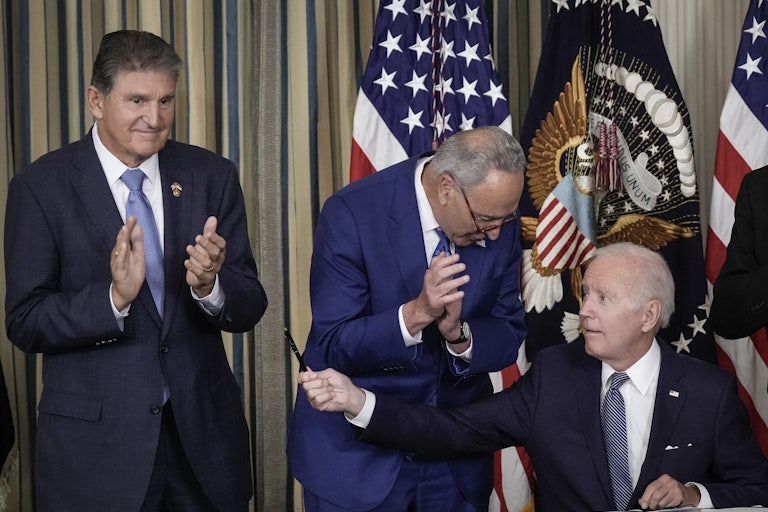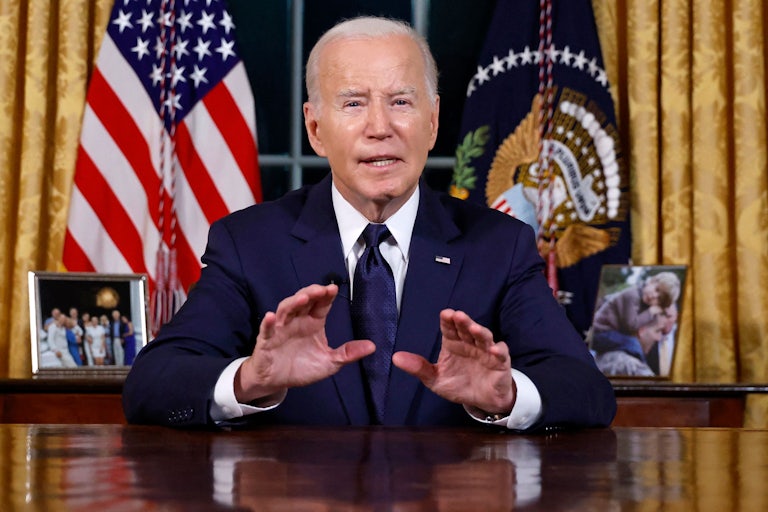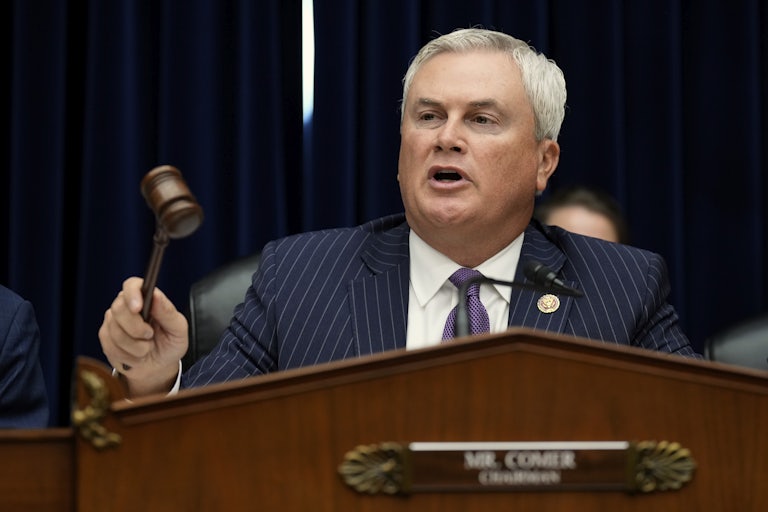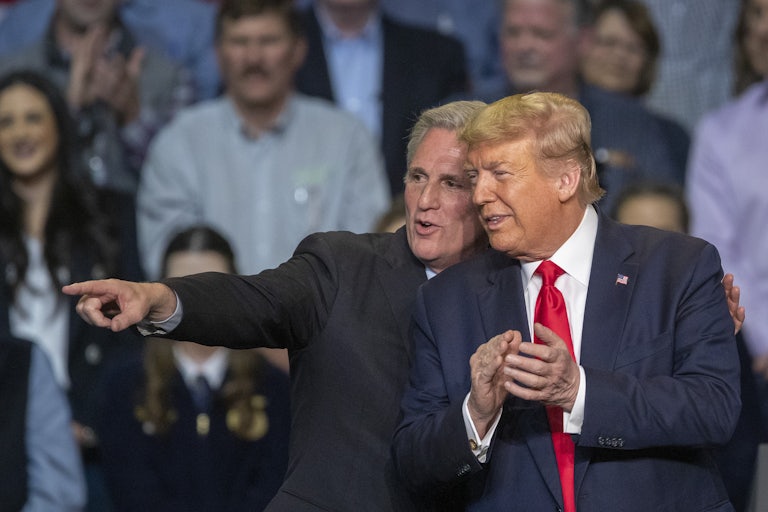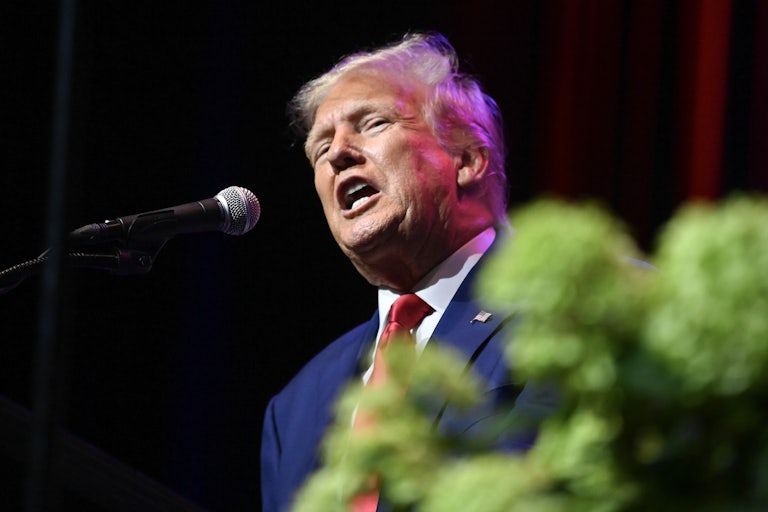The Real Problem With Those College Presidents? Gross Incompetence.
Yes, Elise Stefanik set a trap. But the presidents of Harvard, Penn, and MIT didn’t have to walk right into it.
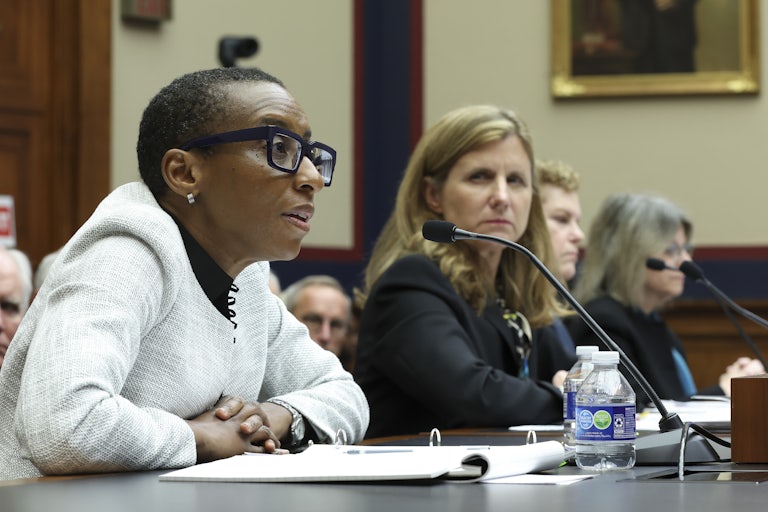
Almost everyone has been piling on that pitiful troika of elite university presidents after their congressional testimony on Tuesday. A few other folks, people I know and respect like Michelle Goldberg of The New York Times and Jay Michaelson of The Daily Beast, have added some valuable nuance, arguing that in context, the position the presidents were defending actually had merit.
I agree with the main points both made in their columns—in effect, that Republican Representative Elise Stefanik’s disingenuous grilling of the presidents, which conflated free speech with targeted harassment, set a trap that forced them to appear to equivocate about antisemitism. But I want to make a different point, one that is sharply critical of the presidents on different grounds. I was personally offended by their gross incompetence, and it wouldn’t bother me in the least if they were all fired simply for that reason (if any of them are forced out, of course, it won’t be because of that).
Here’s what I mean. As the president of Harvard, Penn, or MIT, you are by definition one of America’s leading representatives of the liberal values of inquiry, critical thinking, science, anti-superstition, and, yes, free speech. On your home turf, you are confronted from time to time, or maybe more frequently than that, with situations in which some of these values come into conflict with each other, and you have to make a difficult decision. The national media, especially the right-wing media, is monitoring every move you make, every syllable you utter.
You exist, that is, at the center of an ideological tornado. You know this, or should. And you show up to Capitol Hill so unspeakably ill prepared that you—and your coterie of almost-certainly overpaid handlers—haven’t prepped for exactly the line of questioning that Stefanik pressed upon you? Indefensible.
A memorable moment in a 1988 presidential debate helps explain the key error the trio made. CNN anchor Bernard Shaw opened the proceedings by asking Democratic nominee Michael Dukakis about his opposition to the death penalty. “If Kitty Dukakis were raped and murdered,” Shaw asked, “would you favor an irrevocable death penalty for the killer?”
Dukakis restated his opposition to the death penalty with all the ardor of someone reading the phone book (what’s a phone book, you ask? This). The next day, some commentators criticized Shaw for being a little blunt, but mostly people laid into Dukakis for not saying something like: “First of all, Bernie, how dare you talk that way, even hypothetically, about my wife? You should be ashamed. And second of all, if I got my hands on the guy, they wouldn’t need the death penalty.”
Cheap? Theatrical? Sure. But it isn’t insane for people to want to see leaders show a little emotion about emotional things.
These presidents made the Dukakis error. They showed no emotion about one of the most emotional topics in the history of the human race, antisemitism. Harvard’s Claudine Gay said the right words, twice; she said hateful antisemitic speech was “personally abhorrent to me.” But she spoke with all the passion of someone giving a passerby directions to Widener Library.
What she and the others needed to do was show a little passion. Passion would communicate that this actually matters to them in a deep way. And they could still make the point they went on to make. It isn’t complicated. They could have said: “Congresswoman, antisemitism repulses me. When I hear someone say ‘gas the Jews,’ or when I watched those people march with those Nazi-like torches in Charlottesville in 2017, I shake with rage. I will never tolerate that on my campus. And yet, Congresswoman, universities must foster debate and allow free speech, even offensive, disgusting speech. Maybe you don’t understand this. I notice that your civil liberties and free speech vote ratings are nothing to write home about.” Boom: from defense to offense.
I know a lot of liberals will scoff at this point, but it’s quite serious. For better or worse we live in an age of theater, and right-wingers are just really good at theater. We must deal with reality as it is. Countless Americans, likely the majority, are getting their news in sound bites that elide context and nuance—on Fox News, yes, but also in 15-second videos on social media. How do we think that testimony has been playing on TikTok over the last three days?
It should go without saying, but I’ll say it all the same, that I obviously hold no brief for Stefanik. She’s a conscienceless fascist who was once a fairly reasonable conservative but took a sip from the poisoned MAGA chalice in 2016, and her career has been one long brownshirt rally ever since.
But the awfulness of her public persona just reinforces my main point. We are at war in this country. On the one side are the values embodied by Stefanik and Donald Trump and Steve Bannon and the soulless evangelical leaders who know exactly who Trump is but have elevated him to savior status because he wants to eradicate “vermin” like you and me. On the other side are the values represented, however imperfectly, by (among other institutions) our universities, great and not so great.
And if you’re on the liberal side, and you decide to waltz into the lion’s den, you had damn well better be ready. You are charged with defending a way of thinking and living that is under ceaseless attack, and you have a responsibility to represent that way of thinking and living for the rest of us who believe in it but don’t have the opportunity to appear before Congress. These presidents let half a country down, and for that, they should be ashamed.

